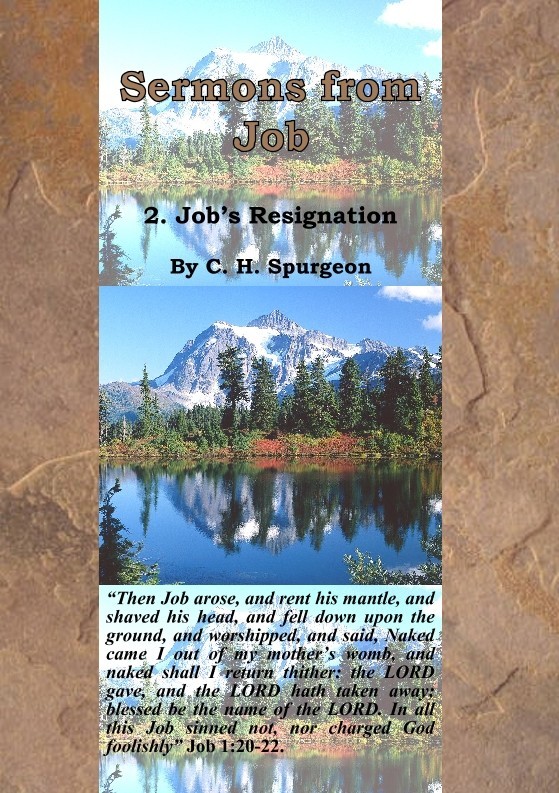
Sermons from Job - 2. Job's Resignation - Job 1,20-22
By Charles Spurgeon
Extract
Sermons from Job
C. H. Spurgeon
2. Job’s Resignation
“Then Job arose, and rent his mantle, and shaved his head, and fell down upon the ground, and worshipped, and said, Naked came I out of my mother’s womb, and naked shall I return thither: the LORD gave, and the LORD hath taken away; blessed be the name of the LORD. In all this Job sinned not, nor charged God foolishly” Job 1:20-22.
Job was very much troubled, and he did not try to hide the outward signs of his sorrow. A man of God is not expected to be a stoic. The grace of God takes away the heart of stone out of his flesh, but it does not turn his heart into a stone. The Lord’s children are the subjects of tender feelings; when they have to endure the rod, they feel the smart of its strokes; and Job felt the blows that fell upon him. Do not blame yourself if you are conscious of pain and grief, and do not ask to be made hard and callous. That is not the method by which grace works; it makes us strong to bear trial, but we have to bear it; it gives us patience and submission, not stoicism. We feel, and we benefit by the feeling, and there is no sin in the feeling, for in our text we are expressly told of the patriarch ’s mourning, “In all this Job sinned not.” Though he was the great mourner —I think I might truly call him the chief mourner —of Scripture, yet there was no sin in his mourning. Some there are who say that, when we are heavy of heart, we are necessarily in a wrong spirit, but it is not so. The apostle Peter saith, “If need be ye are in heaviness through manifold trials, ” but he does not imply that the heaviness is wrong. There are some who will not cry when God chastiseth them, and some who will not yield when God smiteth them. We do not wish to be like them; we are quite content to have the suffering heart that Job had, and to feel the …